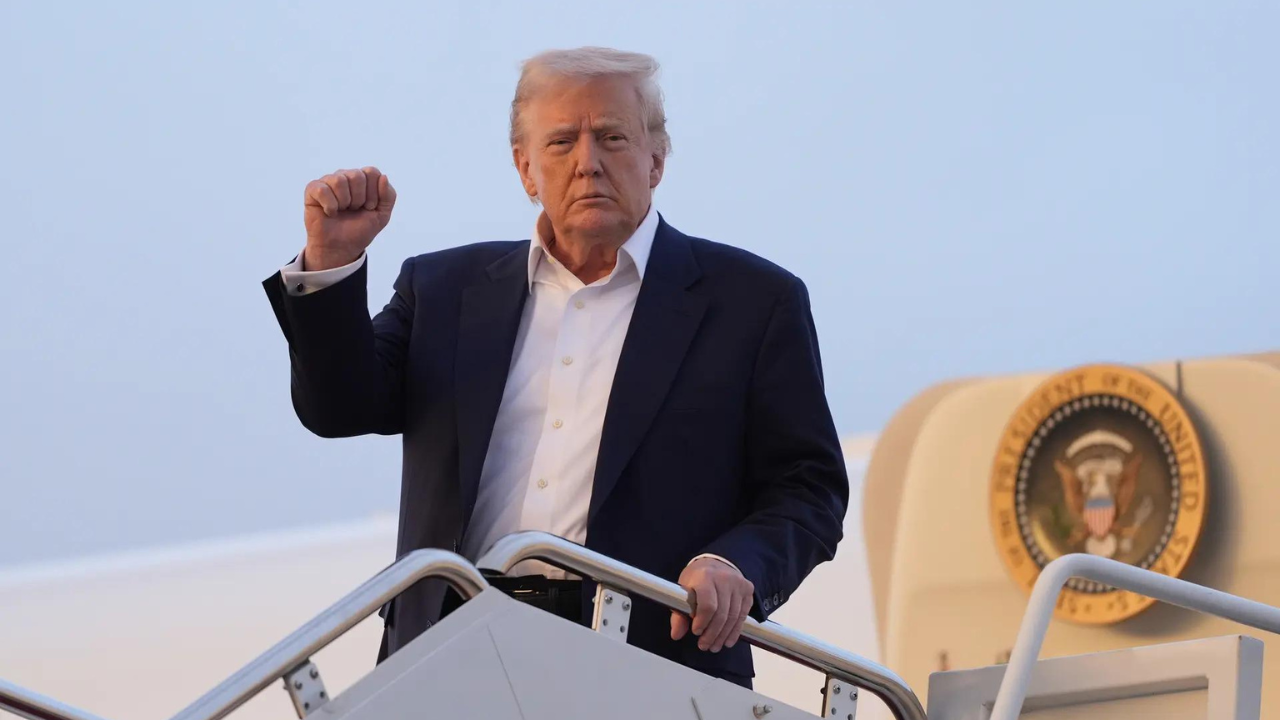ARTICLE AD BOX

President Donald Trump's trade war and the significant cuts in scientific research at U.S. agencies are moving "America down the value chain," political analyst Jonathan Chait wrote for "The Atlantic" on Monday.
Trump inherited a "healthy economy," only to "burn [it] down," Chait wrote. He questioned whether it was incompetence or if there was something strategic Trump was attempting to do.
In a way, he said, the answer is both.
"The administration does have a plan, or at least a vision, for what will spring up from the ashes," he wrote. "The trouble is that the long-term economic program is even worse than the short-term one."
ALSO READ: Trump is about to target something far more terrifying than tariffs
In an interview with Tucker Carlson last week, Treasury Secretary Scott Bessent said that all of the new factories he claims will be built for manufacturing in the U.S. after Trump's tariffs will make perfect jobs for federal workers who were recently fired.
Later in the interview, however, veteran news reporter Phil Williams pointed out that Bessent said most of those jobs would be handled by AI or robots.
"The typical pattern for economic development involves moving a nation’s economy up the value chain. A poor country develops export markets by specializing in low-wage manufacturing," wrote Chait. "Eventually, these industries develop higher levels of sophistication, adding more intellectual value—first they build toasters and cameras, then cars, then robots. These industries generate tax revenue that can support better schools and other forms of public investment, feeding back into the developmental cycle. That’s how the 'Asian tigers' (Hong Kong, Singapore, South Korea, and Taiwan) enjoyed rapid economic growth over the past two generations, and it’s the pattern other developing countries are hoping to follow."
Trump is running the same play, but "in reverse," said Chait.
He said that purging staff from the National Institutes of Health and cutting funding grants from the National Science Foundation "has had a catastrophic effect on a wide array of high-tech fields." It was so serious that a "group of medical-innovation investors took the immense risk of putting their names on a letter to the administration warning that the research cuts 'are an assault on the foundation of biomedical and technological progress.'"
Meanwhile, Trump's tariffs were supposed to "promote industrialization," wrote Chait.
The impact has been a "more direct impact of directing American production back into industrial inputs. Trump has raised tariffs on metals, which makes building things more expensive but creates an incentive to reshore the production of steel and aluminum. This moves the industrial economy down the value chain, rather than up, which makes sense only if the objective is to have an economy with more guys wearing hard hats," he said.
.png)
 3 weeks ago
2
3 weeks ago
2








 English (US)
English (US)